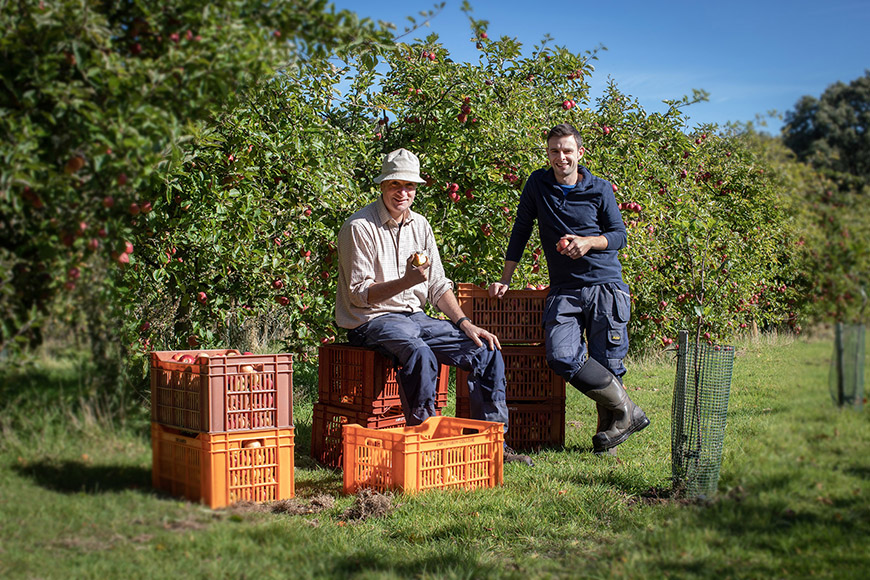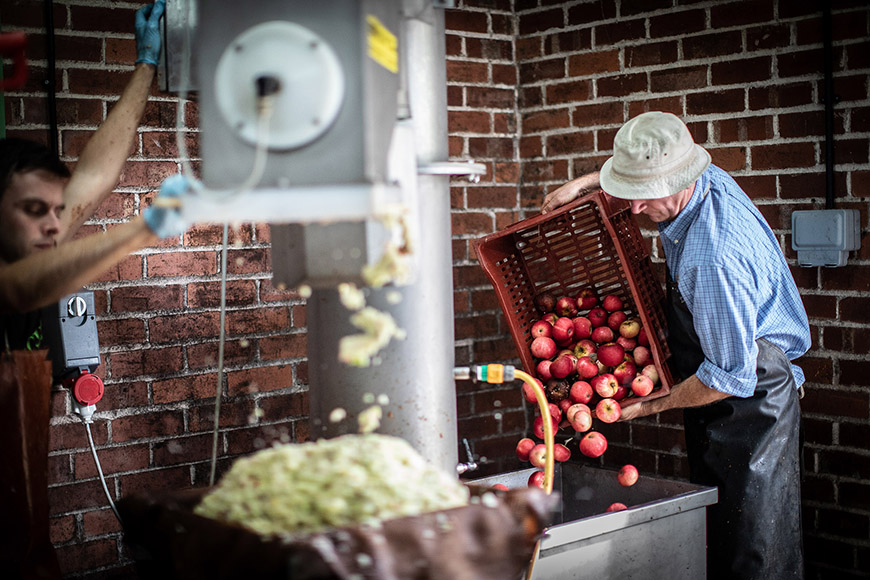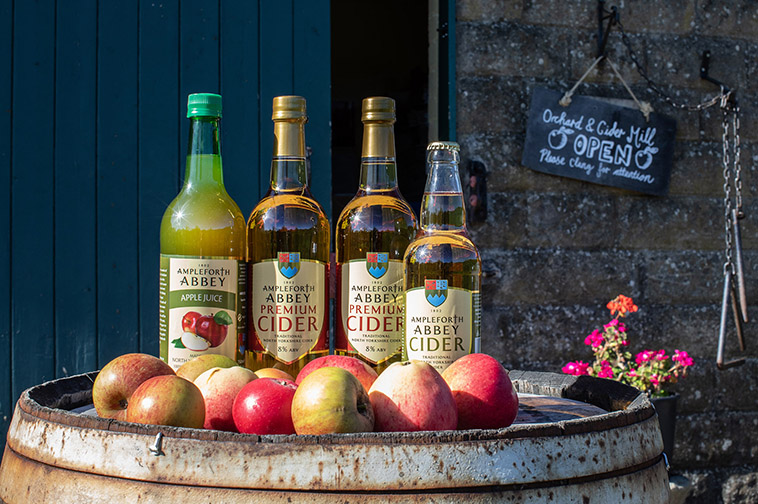The cider maker
By his own admission Tim Saxby is an apple obsessive, which is no bad thing for an Orchard Manager looking after the serried rows of 2,500 apple trees bearing 80 different varieties.
Ampleforth Abbey, set splendidly in the foothills of the North York Moors, is a community of Benedictine monks that follow the way of St Benedict and teach at the famous Ampleforth College.

Visitors are welcome to the Abbey Church, tearoom and shop and to this unique orchard, the last substantial monastery orchard in Britain, planted in 1900, to supply the school and the Benedictine community with fruit.
‘What they didn’t account for when they planted it, was its growth and maturity,’ says Tim. ‘What do you do with 40 tons of apples?’ There being only so much apple crumble the hungry monks and school pupils could eat, the orchard diversified into cider and juicing.
Successive ripening means that apples are harvested from early August until mid-November. ‘We pick whatever’s ripe on the day to make single variety juice that goes from tree to bottle within 24 hours,’ Tim explains. The cider uses both dessert and cooking apples, pressed and fermented on site. ‘When the vat hits its sweet spot, we bottle it. It’s a beautiful fresh tasting cider, and because of the different apple varieties every batch is a little bit different.’

The 80 apple varieties make up the orchard’s remarkable heritage collection, preserving long forgotten names like St Edmund’s Pippin, Belle de Boskoop, Ashmead’s Kernel, Beauty of Bath, Blenheim Orange, and Ribston Pippin, first grown at Ribston Hall near Knaresborough.
‘English apples have so much diversity and texture,’ says Tim biting into a rosy skinned Discovery. He suggests everyone should plant an apple tree in their garden. ‘There’s a tree for everyone. If you get a “good doer” as we used to call them, they will reward you with top quality fruit.’
When Tim first took over the orchard, many of the trees were cankered and the fruit was of poor quality. By careful management he’s returned the orchard to sustainability. ‘We are not organic, but we don’t spray; we don’t have to. The fruit doesn’t have to be perfect for pressing. We grow for flavour.’
In the past, every farm, country house and suburban garden would have had its fruit trees but space for housing and road building, and cheap imports from abroad have caused many orchards to be grubbed up. Since 1960 two thirds of Britain’s orchards have been lost, which makes Ampleforth’s orchard all the more precious.

Tim Saxby insists it’s not a commercial orchard. ‘Our strength is in diversity. We are growers. There are 2,500 apple varieties in the national collection, we have 80 and we are still adding to them.’
Sitting in the Cider Mill in mid-September after a day’s harvesting, the view is of row upon row of trees heavy with apples of every hue. It’s a credit to the Benedictine tradition of self-sufficiency that the Ampleforth Community have preserved this orchard for nearly 120 years and maintained the unique heritage apple collection in all its wonderful diversity.
